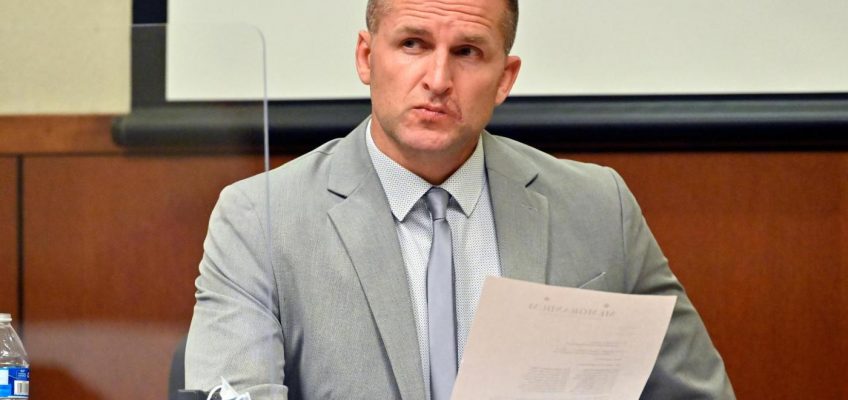By DYLAN LOVAN, Associated Press
LOUISVILLE, Ky. (AP) — The U.S. Department of Justice is arguing that a former Louisville police officer convicted of using excessive force during the deadly Breonna Taylor raid should be let out of prison while he appeals his conviction.
Related Articles
Indiana homeowner charged in fatal shooting of house cleaner who showed up at the wrong door
Judge overseeing US Rep. McIver’s case tells prosecutors to turn over authorities’ texts
Hundreds of National Guard troops deployed to Portland and Chicago are being sent home
Bird flu cases are on the rise again, including 2 million turkeys. Will that affect your Thanksgiving dinner?
Supreme Court will review an old policy used to turn away asylum seekers at the US border
Federal prosecutors filed a brief Friday before the Sixth Circuit U.S. Court of Appeals, arguing that Brett Hankison should not be in prison. The same prosecutors asked the trial judge ahead of Hankison’s July sentencing to give him no prison time, but that request was denied and Hankison was sentenced to 33 months in prison.
Hankison, a former detective, became the first officer involved in the March 2020 raid to be convicted on criminal charges. But new prosecutors brought in by the Trump administration earlier this year sought leniency for Hankison, an about-face after the DOJ spent years prosecuting him through two trials.
Hankison, 49, is serving the sentence at a federal prison in New Jersey. His release date is February 2028, according to online records.
In the new filing, prosecutors argued that the trial jury struggled with the excessive force charge against Hankison, making a prison sentence “unwarranted.”
Hankison fired 10 shots into the windows of Taylor’s apartment the night of the deadly raid, but didn’t hit anyone. Some of his shots flew into a neighboring apartment, nearly striking two people inside. Prosecutors said at trial his shots also came close to a fellow officer.
At his sentencing in July, U.S. District Judge Rebecca Grady Jennings rebuffed the DOJ’s request for no prison time, saying the Justice Department treated Hankison’s actions as “an inconsequential crime.”
The former officer’s first federal trial on excessive force charges ended in a mistrial in 2023, and he was acquitted of state charges of wanton endangerment in 2022.
Two other officers shot Taylor as they returned fire, after Taylor’s boyfriend opened fire when police broke down the door. Hankison was behind the officers and when the shooting started, he ran to the side of the apartment and fired through the windows.
Hankison said at trial he was trying to protect his fellow officers, who he believed were coming under fire from someone inside with a rifle.




